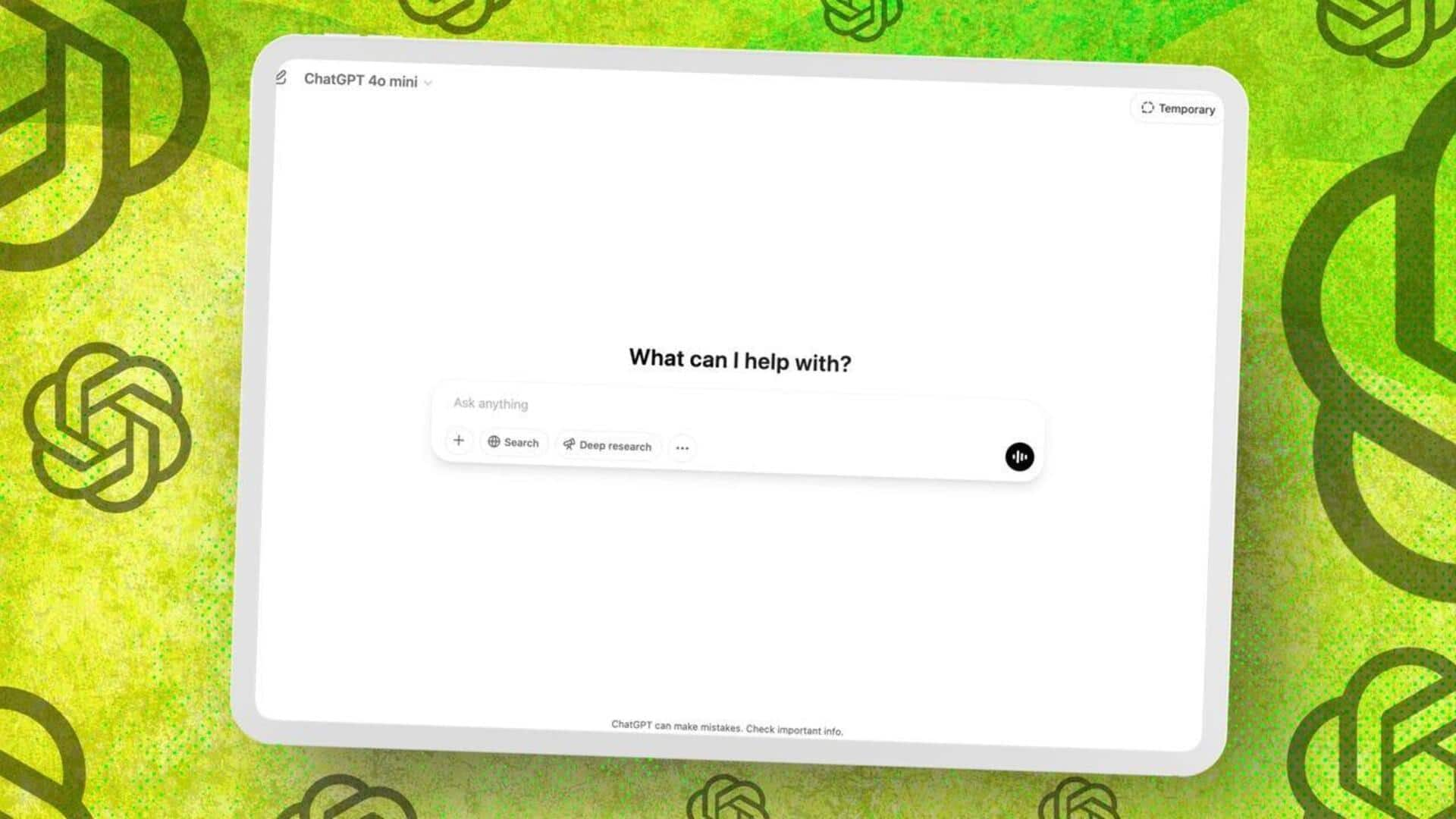
ChatGPT can now read your cloud data for tailored answers
What's the story
OpenAI has announced a major update for ChatGPT, introducing new features to enhance its utility for business users. The latest version of the AI chatbot now supports integrations with popular cloud services such as Google Drive, Dropbox, Box, SharePoint, and OneDrive. This means that users can use ChatGPT to search for information across their own services and get answers tailored to them. For instance, one can ask, "What was my company's revenue in Q1 last year?" from stored spreadsheets/documents.
Feature expansion
AI can now generate meeting notes
The latest update also includes a meeting recording and transcription feature, which can generate notes with time-stamped citations and suggest actions. Currently available for ChatGPT Team subscription, users can query information in their meeting notes, just like they would with documents and files across integrated services. Plus, action items can be converted into a Canvas document, OpenAI's tool for writing and coding projects.
Advanced integration
Deep research connectors for HubSpot, Linear added in beta
The update also brings deep research connectors for HubSpot, Linear, and select Microsoft and Google tools in beta. This lets all paid users create detailed research reports using knowledge from these sources and the web. OpenAI is also introducing Model Context Protocol (MCP) support to connect with other tools for deep research, available to Pro, Team, and Enterprise users.
Twitter Post
Take a look at OpenAI's announcement
ChatGPT can now connect to more internal sources & pull in real-time context—keeping existing user-level permissions.
— OpenAI (@OpenAI) June 4, 2025
Connectors available in deep research for Plus & Pro users (excl. EEA, CH, UK) and Team, Enterprise & Edu users:
Outlook
Teams
Google Drive
Gmail
Linear
& more
Market growth
ChatGPT already has over 3 million enterprise users
The addition of these features shows OpenAI's ambition to get businesses to adopt ChatGPT more than they already do in their enterprise workspaces. The company has already witnessed significant growth, with over three million customers now using its enterprise-focused products, up from two million reported by OpenAI COO Brad Lightcap in February.